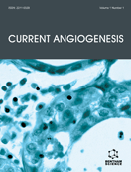Abstract
Judah Folkman’s concept of targeting angiogenesis to regulate tumor growth and metastasis resulted in a series of scientific discoveries in vascular biology that led to the development of anti-angiogenic molecules to neutralize vascular endothelial growth factor (VEGF). The concomitant development in understanding the role of VEGF in neovascular age-related macular degeneration (NVAMD) led to a dramatic change in the treatment of NVAMD and significant improvement in its prognosis. This review will provide a brief history of angiogenesis research from its development in the world of cancer biology to its eventual application in retinal medicine and NVAMD. We will then present an overview of the therapeutic interventions for NVAMD, which highlights how a deeper understanding of the molecular mechanisms of NVAMD and angiogenesis eventually led to a paradigm shift in its management. Finally, we will discuss future interventions for NVAMD designed to circumvent the clinical and financial burdens placed on physicians and patients as a consequence of chronic anti-angiogenic therapy.
Keywords: Age-related macular degeneration, angiogenesis, anti-VEGF, choroidal neovascularization, vascular endothelial growth factor
 18
18

